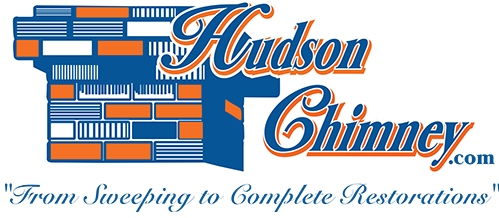by Mark Hudson | Nov 28, 2015 | Chimney Sweeping Logs
Have you ever wondered why you need to have your chimney professionally swept annually? Of course, your chimney gets pretty dirty from regular fires in the fireplace, but soot and dust is not the most important reason for this maintenance task. Your chimney should be cleaned professionally once a year to remove the accumulated creosote from the inner walls of the flue. A compound that forms naturally as a result of the combustion process of burning wood, creosote is extremely flammable and is the main cause of chimney fires. It is essential to get all of the creosote out of your chimney so you can enjoy your fireplace without worrying about this fire hazard. You may have seen chimney sweeping logs, a product that claims to remove and reduce creosote from your chimney, and considered that they could be a substitute for a chimney sweeping by one of the Chimney Safety Institute of America (CSIA)-certified chimney professionals from Hudson Chimney. However, this is not the case, and chimney sweeping logs can even lead to dangers in your home. We would like to tell you more about why you should never substitute a professional chimney cleaning by using chimney sweeping logs.
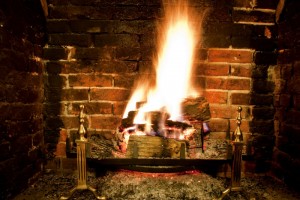
WHAT CHIMNEY SWEEPING LOGS DO
Burning a chimney sweeping log in your fireplace or stove releases chemicals that use catalytic action to remove a portion of accumulated creosote from your chimney. These chemicals cause creosote to flake off and break away from the chimney wall. While this product does remove some of the creosote, the CSIA has its concerns. The claims of chimney sweeping logs are not completely accurate and can lull homeowners into a false sense of security.
THE RISKS OF CHIMNEY SWEEPING LOGS
As we said earlier, creosote is very flammable, so when pieces of creosote are falling down your chimney after flaking off, they could easily catch on fire and lead to a devastating chimney fire. Even if the creosote does not ignite on its way down, the pieces end up at the bottom of your chimney to gather on the smoke shelf and form together to cause yet another fire hazard. Any creosote remaining in your chimney, whether or not it is stuck to the walls of the flue, poses a dangerous fire hazard.
WHY A PROFESSIONAL CHIMNEY SWEEPING IS SO CRUCIAL
Firstly, you can trust our CSIA-certified sweeps at Hudson Chimney to completely remove all of the creosote from your chimney. We know far too well the dangers of creosote, and we take great care to be sure we have gotten all of the accumulated deposits out of your chimney. Not only do we thoroughly clean your chimney, but we also provide a professional inspection with every chimney sweeping. Our sweeps will closely examine the interior and exterior of your chimney to look for any damage that needs to be fixed for your fireplace and chimney to function effectively and safely. If any debris such as nests from birds and animals or leaves are blocking your chimney, we will also remove the blockage to prevent any accidental fires or carbon monoxide leaks.
Have you had your chimney professionally swept this year? Stay away from chimney sweeping logs, and contact us at Hudson Chimney to make an appointment for a safe chimney this winter.
by Mark Hudson | Jul 15, 2014 | chimney maintenance, fire safety, fireplaces

It’s important to know what could happen if you keep on ignoring your chimney’s needs. Negligence on your part might bring you to regret not taking care of it.
If you have ever wondered why the Chimney Safety Institute of America (CSIA), along with numerous other fire safety and government health organizations, recommend an annual chimney sweeping and inspection, “dirty chimneys kill.” While we are not trying to scare you into scheduling your yearly chimney cleaning, Hudson Chimney would like to tell you exactly why you need an annual chimney sweep and inspection, so you can understand the urgency behind following this important step of chimney maintenance.
1. A chimney sweeping removes the buildup of creosote from the walls of your chimney.
If you burn wood, creosote will occur naturally during condensation from when smoke, gases, and vapors from your fireplace exits the upper, cooler walls of your chimney. Sticking around as a residue, creosote can be black or brown and varies in appearance. Whether it is shiny and hard, crusted and flaky, or gummy and tar-like, creosote is highly combustible. If enough of the creosote residue builds up in your chimney and the internal flue reaches high temperatures, you have the makings of a dangerous chimney fire. An annual chimney cleaning from a CSIA-certified company like Hudson Chimney can remove creosote deposits before they can become large enough to ignite a fire.
2. A chimney inspection will alert you to any water penetration damage that might exist in your chimney.
If you own a masonry chimney, you should know that the CSIA has called water the number one enemy of the bricks and mortar of your chimney. For good reasons, water penetration can cause extensive and expensive damages and repairs to masonry fireplaces and chimneys. From loose bricks and mortar to rusted appliances to serious structural deterioration, the destruction caused by water can be alarming. Hudson Chimney can find the leak that is causing the damage, repair the leak and damage, and then apply a waterproofing sealant to prevent any more water penetration of your masonry chimney.
3. A chimney sweeping and inspection can prevent toxic gases like carbon monoxide from entering your home.
Unfortunately, cases of carbon monoxide poisoning are on the rise, due to the focus on energy-efficiency. While the temperate air is sealed in, saving you money, the toxic by-products of combustion are also sealed inside, as air flow has been restricted. If there is not enough oxygen coming in to completely burn the fuel, carbon monoxide is produced, and since you cannot see, smell, or taste it, you and your family could be breathing it in for quite a while. A CSIA-certified inspection from Hudson Chimney will ensure the drafting and venting is working to keep the air flow going through the house, bringing oxygen to the heating source. A sweeping will also remove any possible blockages like animal nests to prevent another source of carbon monoxide invading your home. If you and your family develop flu-like symptoms that do not disappear, ask your doctor for a carbon monoxide blood test to be sure your health is not at risk.
If you have not scheduled your annual chimney sweeping and inspection this year, contact Hudson Chimney today. Proper chimney maintenance begins with this important step.
by Mark Hudson | Jun 27, 2014 | chimney maintenance, fireplaces
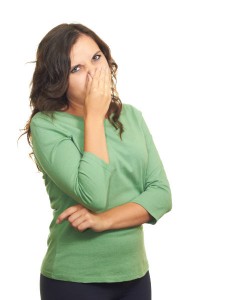
Can’t bear that unpleasant odor coming from your fireplace? It’s time for an inspection and thorough cleaning. Schedule an appointment today.
If your home has the strong, musty, smoky smell of an old cabin in the woods—but that’s not exactly the effect you were going for—and the origin of the smell seems to be your chimney and/or fireplace or stove, there is hope.
Being the owner of a well-loved and often-used fireplace does not mean you have to live with that overpowering fireplace odor. A trained chimney sweep will be able to suss out the cause of the smell and plot an effective plan for removal.
Why Does My Fireplace Smell?
Even though odors don’t usually vary much from fireplace to fireplace—hence most people know exactly what we mean when we say “that campfire smell”—this smell can actually be caused by a number of factors. The important thing to focus on isn’t why your chimney smells smoky; it smells smoky because it has likely accumulated soot and creosote from the fires you burn. Instead, you should focus on why this smoky odor is being dragged into your house. Ordinarily there is a problem with proper venting or with air pressure—both issues that can easily be addressed.
If you live in or around the Jacksonville, Florida, area—where we have worked for more than 30 years—one of Hudson Chimney’s certified chimney technicians will be able to determine the origin of your chimney’s odor. In the meantime, here are a few possible culprits:
- Dead animals or animal infestations are in your chimney; once the animals are removed, this problem can be easily remedied by adding a chimney cap or top-sealing damper to prevent animals from entering in the future.
- A clothes dryer, bathroom vent fan, or another appliance is exhausting air outside your home, and as a result negative air pressure is drawing outside air into your home through your chimney.
- If you have two or more chimneys, they may be competing for air pressure. This is known as “smoke crossover,” and occurs when a fire is exhausting from one chimney, causing the other chimney to draw in air and drag smoke in along with it.
How Do I Deodorize My Chimney?
If it’s been a long while since your chimney was professionally inspected and cleaned, those of us at Hudson Chimney will probably recommend that you start there. It’s kind of like having a physical if you haven’t been to the doctor in a long while. A thorough chimney and fireplace cleaning and sweeping will see to it that excess creosote and combustion byproducts—all of which are strong-smelling—are removed along with any animal nests or blockages.
If there is a backdrafting issue, no thanks to the recent addition of a range hood or energy efficient-windows, for example, your chimney technician will be able to recommend ways to allow your house to “breathe.” Beyond that, there are many proven methods for deodorizing and preventing chimney odors.
Have questions about chimney odors? Call Hudson Chimney today.
by Mark Hudson | Apr 24, 2014 | chimney maintenance, fire safety
Problems in your chimney’s flue can pose a threat to your family’s health and safety. It is important to have a fully-functional and efficient chimney liner. Here’s what you need to know:
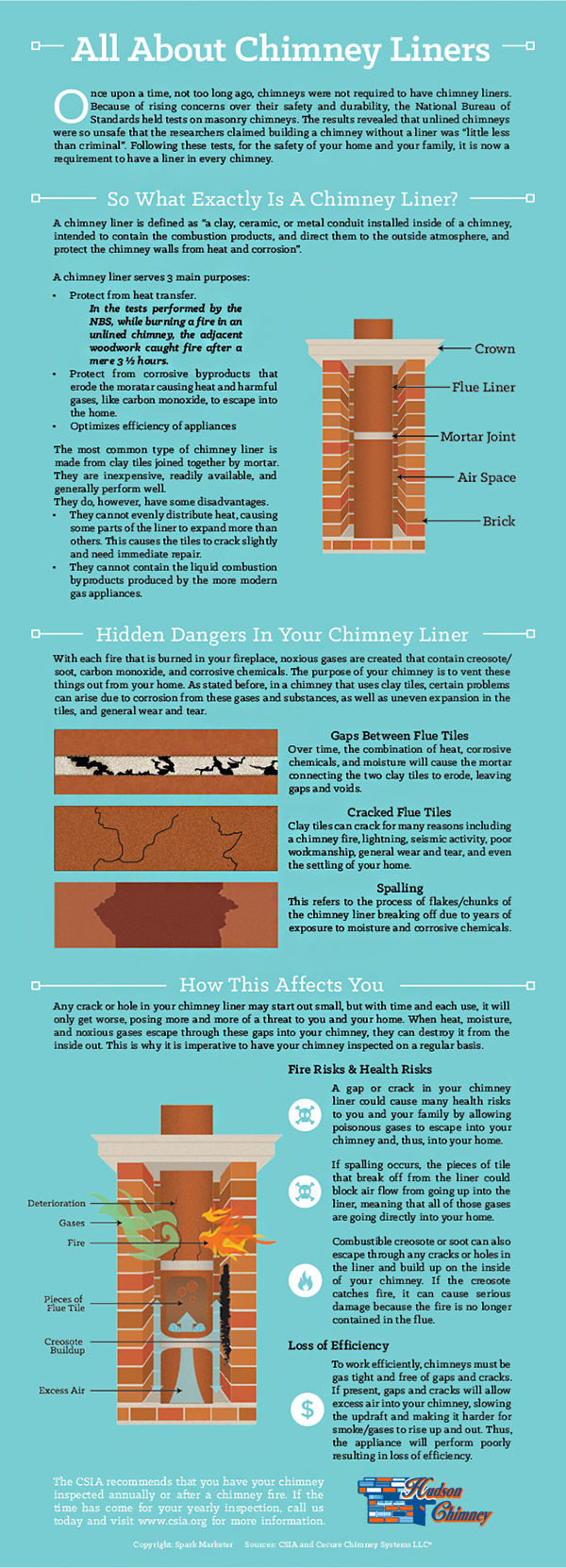
Is smoke coming in instead of going out? If you think your chimney liner needs repairing or replacing, Hudson Chimney can offer you the best services.
by Mark Hudson | Mar 12, 2014 | chimney maintenance
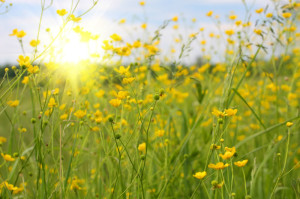
It’s easy to forget about your chimney the moment spring comes to life. But you shouldn’t. Spring is the best time to give proper care to your chimney.
No matter how hard you try, you always seem to forget something when you are making your to do list for the upcoming spring season. You want to make sure you clean the house from top to bottom, begin the gardening, and plan for the summer vacation. Nowhere in this list, does taking care of your chimney’s maintenance fit in. This maintenance must be done and in a timely fashion to protect your family and your home’s safety. Call Hudson Chimney today to schedule your appointment.
Do you really need more than one chimney sweep?
It depends on your usage. If you are frequently using your fireplace, you may need two sweeps. This is because with an increase in burning, more creosote will be released. One chimney sweep should be done closer to burning season so that there is little time for anything to build up inside of the unit. The second should be done right after burning season to remove everything from the winter. You should always make sure your chimney sweep is Chimney Safety Institute of America (CSIA) certified. Since the spring season is also slower for chimney companies, you may be able to get a discount.
What are some common repairs that will need to be done?
Since winter storms can often time hurt your chimney’s structure, the spring season is when the repairs will usually begin. This is the time when weather warms up, but the wet season hasn’t kicked in. Your technician will know to check both the flashing and the rain caps.
You will also want to make sure that your chimney is sealed properly. After the unit freezes and thaws multiple times it will begin to crack and the caulk will begin to loosen. After the sweep and repairs, you should look into having the chimney waterproofed, especially if you live in a wet environment.
What do you do with the animals that may have gotten in your chimney?
Even though your first instincts are to panic, you should remain calm and give us a call. To keep both you and the animal safe, this should only be done by a professional. Animals will use your chimney for both nesting and storage, so having the required sweeps will remove all of their droppings. We also have experience removing carcasses. We’ll make sure there is nothing blocking your chimney.
